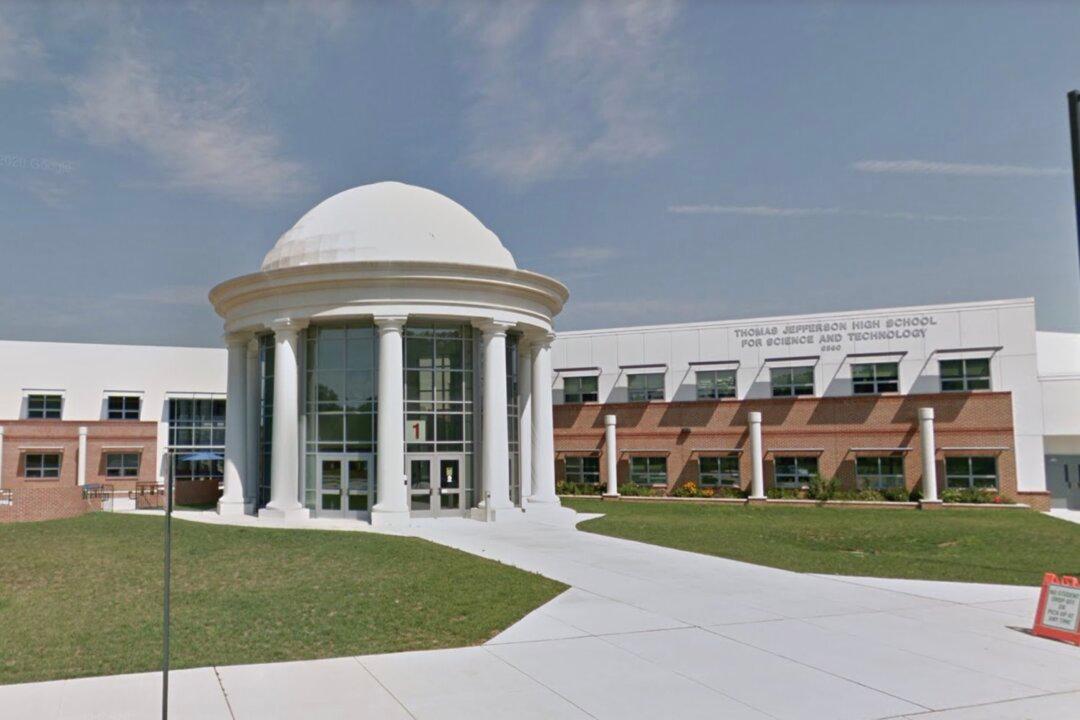A federal appeals court has upheld the admissions policies at Virginia’s top public high school, ruling that the school district didn’t discriminate against students of Asian ethnicity by trying to reduce their presence in the student body.
The decision, issued Tuesday by a panel of three judges on the 4th U.S. Circuit Court of Appeals in Richmond, overturns a lower court ruling last year that found it illegal and unfair for Fairfax County School Board’s to try to “balance” the racial makeup of student population at the Thomas Jefferson (TJ) High School for Science and Technology.





